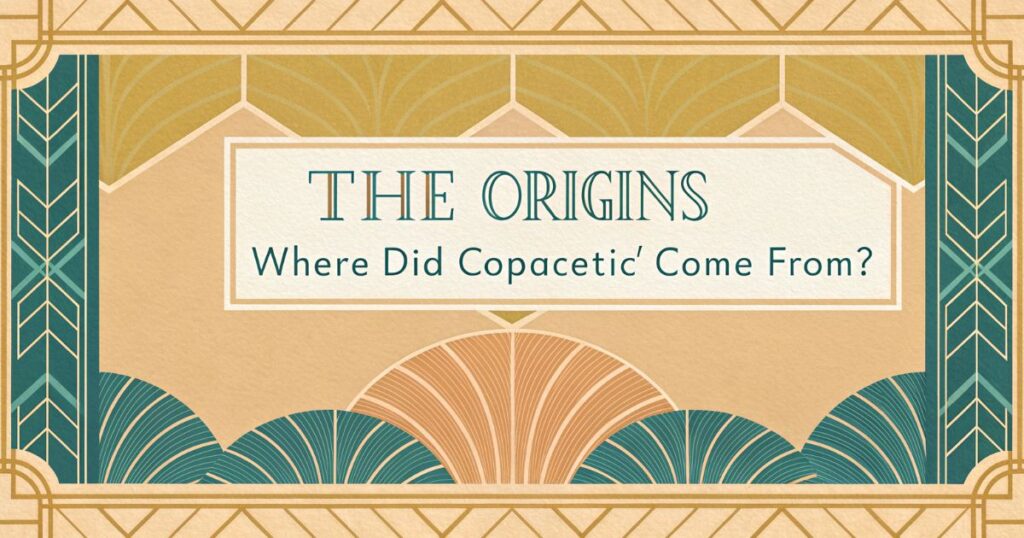You’ve probably heard someone say “everything’s copacetic” and wondered what this peculiar word actually means.
This distinctly American term has been floating around conversations for over a century, yet many people remain puzzled by its true significance.
Today, you’ll discover everything about copacetic – from its mysterious origins to perfect synonyms that’ll elevate your vocabulary game.
What is the True Meaning of Copacetic?
The Core Definition Explained
Copacetic means everything is satisfactory, acceptable, or in excellent working order. When you describe something as copacetic, you’re saying it’s not just okay – it’s genuinely running smoothly without any hiccups.
The pronunciation breaks down as “ko-puh-SET-ik” with emphasis on that third syllable. This word carries a sense of approval that goes beyond mere adequacy.
Think of it this way: if “okay” is vanilla ice cream, then copacetic is that premium vanilla with real vanilla beans. Both work, but one has more character.
The Emotional Nuance Behind “Copacetic”
Here’s where copacetic gets interesting. Unlike saying “fine” or “okay,” this word implies genuine contentment with how things are progressing.
When your boss asks about the project status and you respond “everything’s copacetic,” you’re conveying confidence and satisfaction. You’re not just tolerating the situation – you’re pleased with it.
However, there’s also a casual coolness to copacetic. It suggests you’re laid-back about things going well, almost like you expected nothing less.
The Origins Where Did “Copacetic” Come From?

Etymology Theories That Fascinate Linguists
Nobody knows exactly where copacetic originated, and that’s part of its charm. Linguists have proposed several fascinating theories about its birth.
The most compelling theory traces copacetic back to African American Vernacular English in the early 1900s. Jazz musicians and performers likely helped spread this expressive term throughout American culture.
Another intriguing possibility involves Italian immigrants. Some researchers suggest it evolved from “tutto copacetico,” meaning “all settled” or “all fixed up.”
The Hebrew connection theory proposes that copacetic derives from “kol b’seder” (כל בסדר), meaning “everything is in order.” Jewish vaudeville performers might have introduced this phrase to mainstream American English.
Historical Timeline of Usage
The first recorded appearance of copacetic in print dates back to 1919. It showed up in various forms of American entertainment literature during the Jazz Age.
Vaudeville performers played a crucial role in popularizing the term. They used it in skits and routines, helping it spread from coast to coast across theaters.
By the 1920s, copacetic had embedded itself firmly in American slang. Jazz musicians, in particular, embraced this word as part of their cool vernacular.
What is a Synonym for Copacetic?
Perfect Alternatives for Different Contexts
When you need alternatives to copacetic, consider your audience and setting carefully. Satisfactory works perfectly in formal business environments where you want to sound professional.
Hunky-dory brings the same upbeat energy as copacetic but feels more playful. Use this when you want to inject some personality into casual conversations.
Peachy keen delivers optimism with a slightly retro vibe. It’s perfect for informal situations where you want to sound enthusiastic about positive outcomes.
Ship-shape works brilliantly when describing organized, orderly situations. Maritime origins give this synonym a crisp, efficient feeling.
Nuanced Synonym Categories
Formal synonyms include acceptable, adequate, and satisfactory. These work in professional emails, reports, and business meetings without raising eyebrows.
Informal alternatives like cool, groovy, and “right on” capture copacetic’s laid-back spirit. These fit naturally into friendly conversations and casual settings.
Professional contexts benefit from terms like optimal, functioning well, and operating smoothly. These convey competence while maintaining appropriate workplace tone.
Context-Specific Word Choices
Business meetings call for measured language. Instead of copacetic, try “proceeding as planned” or “meeting expectations successfully.”
Casual conversations with friends welcome more colorful alternatives. “All good,” “smooth sailing,” or “right as rain” capture the same positive energy.
Regional preferences vary significantly across the United States. Southern speakers might prefer “fine and dandy,” while West Coast conversations lean toward “all set.”
How to Use the Word Copacetic in a Sentence?
Practical Sentence Examples
Workplace scenarios benefit from strategic copacetic usage. “The quarterly reports look copacetic to me” sounds confident without being overly casual.
Personal relationship contexts work beautifully with this term. “Everything between us is copacetic now” suggests resolution and mutual satisfaction.
Daily situations provide perfect opportunities for natural usage. “My car’s running copacetic after the tune-up” conveys genuine satisfaction with the results.
Grammar Rules and Positioning
Copacetic functions primarily as a predicate adjective, appearing after linking verbs like “is,” “seems,” or “appears.” This represents its most common grammatical role.
Attributive positioning (before nouns) occasionally works but sounds less natural. “The copacetic situation pleased everyone” feels awkward compared to “The situation seemed copacetic.”
Avoid treating copacetic as an adverb. Saying “things are going copacetic” sounds incorrect – stick with “things are copacetic” instead.
Advanced Usage Techniques
Combining copacetic with descriptive words creates more vivid expressions. “Everything’s perfectly copacetic” or “reasonably copacetic” adds nuance to your meaning.
Idiomatic expressions featuring copacetic remain relatively rare, but “keeping things copacetic” has gained some traction in casual speech.
Regional variations affect sentence structure minimally. However, Southern speakers might add “real” before copacetic for emphasis.
Copacetic vs. Similar Words: Subtle Distinctions
“Copacetic” vs. “Okay”
Emotional undertones separate these words significantly. “Okay” suggests mere acceptance, while copacetic implies genuine satisfaction with current circumstances.
Formality levels differ substantially. Copacetic sounds more distinctive and memorable than the ubiquitous “okay” in most conversational contexts.
Regional preference patterns show interesting variations. Urban areas favor “okay” for its simplicity, while rural communities sometimes prefer copacetic’s character.
“Copacetic” vs. “Fine”
Enthusiasm level comparisons reveal important distinctions. “Fine” often carries subtle resignation, while copacetic communicates active contentment.
Conversational dynamics change dramatically based on word choice. Responding “that’s fine” versus “that’s copacetic” creates entirely different interpersonal impressions.
When choosing between these options, consider your relationship with the listener. Copacetic builds rapport through shared cultural knowledge, while “fine” maintains neutral ground.
Modern Usage Trends and Cultural Impact
Digital Age Adaptations
Social media platforms show varying copacetic adoption rates. Twitter users embrace its distinctive character count efficiency, while Instagram captions feature it for personality.
Text messaging abbreviations haven’t emerged consistently yet. Most people spell out copacetic completely rather than creating shortened versions.
Generational differences reveal fascinating patterns. Millennials and Gen X use copacetic nostalgically, while Gen Z discovers it through retro cultural references.
Pop Culture and Media Influence
Recent movie and TV show references help maintain copacetic’s cultural relevance. Period dramas set in the 1920s-1940s feature it prominently for authentic dialogue.
Music lyrics occasionally incorporate copacetic for its rhythmic qualities. Hip-hop artists particularly appreciate its distinctive sound and historical connections.
Celebrity usage patterns remain sporadic but impactful. When public figures use copacetic in interviews or social media, it typically sparks brief renewed interest.
FAQs
What is the true meaning of copacetic?
Copacetic means satisfactory, acceptable, or in excellent working order. It suggests things are running smoothly and you’re genuinely pleased with how they’re progressing. The word carries more positive energy than simply saying “okay” or “fine.”
What is a synonym for Copacetic?
Popular synonyms include satisfactory, hunky-dory, peachy keen, and ship-shape for casual contexts. For formal situations, try “acceptable,” “adequate,” or “functioning well.” Choose based on your audience and setting for maximum impact.
How to use the word copacetic in a sentence?
Use copacetic as a predicate adjective after linking verbs: “Everything looks copacetic to me” or “The situation seems copacetic.” Avoid using it as an adverb or before nouns for most natural-sounding speech patterns.
More Posts
AFK Meaning: The Essential Guide to Understanding and Applying AFK
ETA Meaning: Exploring Its Importance in Different Contexts
Habibti Meaning: Definition, Common Usage, and Synonyms

Welcome to Brightnis! I am the admin and creator of this platform. I love questioning ideas and exploring different situations. My goal is to encourage critical thinking and help people see things from new perspectives. Join me in discussing thought-provoking topics and finding unique solutions to everyday challenges!






